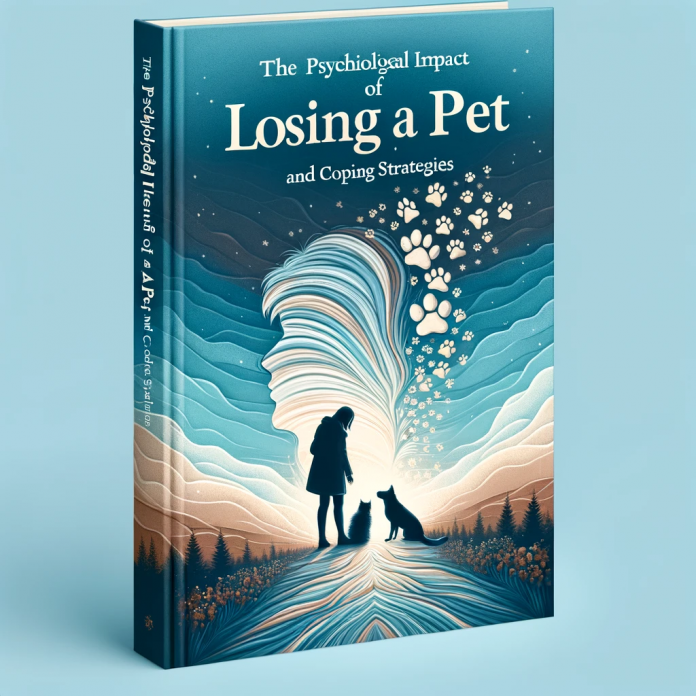Experiencing the loss of a pet can be a deeply emotional and challenging time. Pets are more than just animals; they are cherished members of our families, providing companionship, love, and joy. When they pass away, the grief can be as intense as losing a human loved one. This article delves into the psychological impact of losing a pet and offers strategies to cope with this difficult experience.
The Psychological Impact of Losing a Pet
Understanding the psychological effects of losing a pet is the first step towards healing. The bond between humans and their pets can be incredibly strong, and the loss can trigger a range of emotions.
It's important to remember that everyone's experience with grief is unique. Some people may feel a sense of relief, especially if their pet was suffering from a long-term illness, while others may experience intense feelings of sadness, anger, or guilt.
Grief and Sadness
Grief is a natural response to loss, and it's common to feel a deep sense of sadness when a pet dies. This can be accompanied by crying, feelings of emptiness, and a lack of interest in daily activities.
It's important to allow yourself to feel these emotions and not rush the grieving process. Grief can come in waves, and it's normal to have good days and bad days.
Anger and Guilt
Anger is another common emotion experienced after the loss of a pet. This can be directed towards oneself, others, or even the pet for leaving. Guilt can also arise, especially if the pet's death was sudden or unexpected. It's common to replay events in one's mind and wonder if anything could have been done differently.
While these feelings are normal, it's important to remember that it's not healthy to dwell on them. Seeking support and talking about your feelings can help alleviate these emotions.
Coping Strategies for Pet Loss
While the pain of losing a pet can be overwhelming, there are strategies that can help you cope and eventually find a sense of peace.
Everyone grieves differently, and what works for one person may not work for another. It's important to find coping strategies that resonate with you and help you navigate through your grief.
Allow Yourself to Grieve
One of the most important steps in coping with pet loss is allowing yourself to grieve. It's okay to cry, to feel sad, and to mourn the loss of your pet. Suppressing these feelings can prolong the grieving process and make it more difficult to heal.
Remember that there is no set timeline for grief. It's a personal journey that takes time and patience.
Seek Support
Another crucial step in coping with pet loss is seeking support. This can come in many forms, such as talking to friends or family, joining a pet loss support group, or seeking professional help from a therapist or counselor.
Sharing your feelings with others can help you feel less alone and provide a sense of comfort and understanding.
Memorialize Your Pet
Creating a memorial for your pet can be a therapeutic way to cope with your loss. This can be as simple as planting a tree in your pet's honor, creating a photo album, or writing a letter to your pet expressing your feelings.
Memorializing your pet allows you to celebrate their life and the joy they brought into yours, helping you move forward while keeping their memory alive.
Conclusion
Losing a pet is a deeply emotional experience, and the grief that follows can be intense. However, by understanding the psychological impact of pet loss and utilizing effective coping strategies, it's possible to navigate through this difficult time and eventually find peace.
Remember, it's okay to grieve, to feel sad, and to seek support. Your feelings are valid, and it's important to take care of yourself during this time. With patience and self-compassion, you can heal and keep the memory of your beloved pet alive.


-banner.png)





